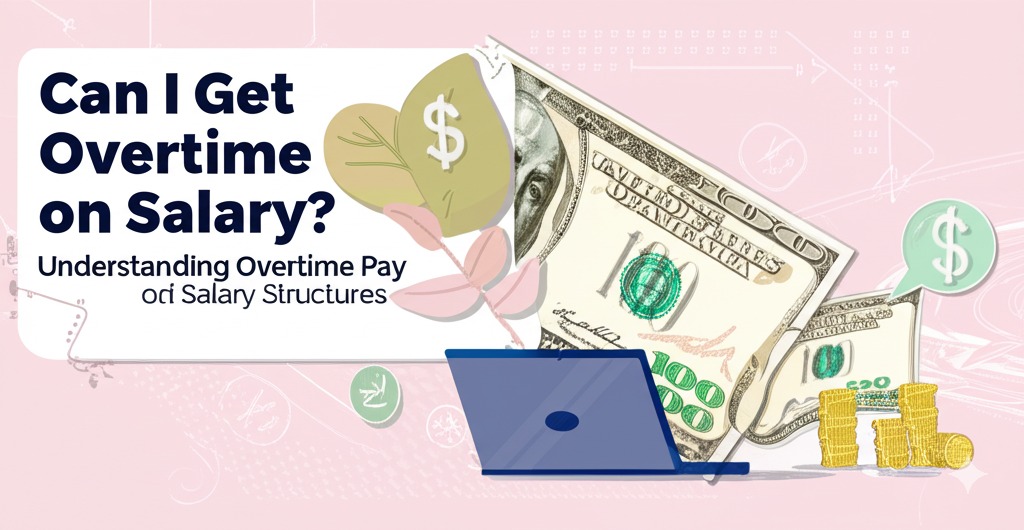
When you’re on a salary, one of the most common questions that arise is whether you’re entitled to overtime pay. While many employees are familiar with hourly wages and the concept of overtime, the rules for salaried workers can be a bit more complex. Understanding whether you can get overtime on a salary requires an in-depth look at labor laws, your job classification, and company policies.
In this article, we’ll explore the basics of salaried employees and overtime pay, who qualifies for overtime, and what you can do if you believe you should be entitled to it.
What is Overtime Pay?
Overtime pay is a type of compensation for hours worked beyond a certain limit, typically 40 hours per week. According to the Fair Labor Standards Act (FLSA), most hourly workers are entitled to receive 1.5 times their regular hourly rate for any hours worked over 40 in a workweek.
But what about salaried employees? Do they automatically qualify for overtime? Let’s dive into the details.
Can Salaried Employees Get Overtime Pay?
The short answer is: it depends.
Salaried employees may or may not be entitled to overtime pay based on various factors, including their job duties, salary level, and whether they fall under specific exemptions outlined by the FLSA.
Exempt vs. Non-Exempt Employees
The key distinction here is between exempt and non-exempt employees.
- Exempt employees: These workers are generally not entitled to overtime pay. They include certain white-collar workers, like executives, professionals, and administrative employees, who meet specific criteria set by the FLSA.
- Non-exempt employees: These workers are entitled to overtime pay, regardless of their salaried status. If you fall into this category, any hours worked over 40 in a week must be compensated at the overtime rate.
Salary Threshold
To determine whether you are exempt or non-exempt, your salary and job duties are assessed. Under the current FLSA guidelines, employees who earn less than $35,568 annually (as of 2023) are typically classified as non-exempt, meaning they are entitled to overtime pay. Employees earning more than this threshold could still be entitled to overtime pay if their job duties do not meet the criteria for exemption.
Common Exemptions for Overtime Pay
Salaried employees are often considered exempt based on their job duties. Some of the common exemptions include:
- Executive exemption: Employees who manage a department or team and have hiring and firing authority.
- Professional exemption: Employees who perform work that requires advanced knowledge, such as lawyers, doctors, or engineers.
- Administrative exemption: Employees who carry out office or non-manual work related to the business operations or management.
- Outside sales exemption: Employees primarily engaged in selling goods or services away from the employer’s premises.
If your job fits one of these categories, you may not be entitled to overtime pay, even if you’re salaried.
Factors That Affect Your Overtime Eligibility
To determine if you qualify for overtime as a salaried worker, several factors must be considered:
1. Job Duties
The primary test for whether you qualify for overtime is your job description. For example, if you have managerial or executive duties, you may be exempt. However, if your role is more focused on manual labor or performing tasks like customer service, you might be eligible for overtime pay.
2. Salary Level
As mentioned earlier, your salary is a key factor. If you earn above the threshold (currently $35,568 per year), you might not be entitled to overtime unless your job duties don’t meet the exemption criteria.
3. State Laws
In addition to federal labor laws, some states have their own regulations regarding overtime pay. For example, California has stricter overtime laws that apply to salaried employees, even for certain exempt employees.
How to Address Overtime Concerns
If you believe you should be receiving overtime pay but aren’t, there are several steps you can take:
1. Review Your Job Classification
Take a close look at your job duties. Are they primarily managerial or professional? If you suspect that your job duties don’t match the exempt status, you might have grounds to discuss your eligibility for overtime.
2. Check Your Pay
Ensure your salary is above the federal threshold and review your work hours. If you’re working over 40 hours per week and not receiving overtime, it’s a red flag.
3. Consult with HR
Reach out to your Human Resources department for clarification. They should be able to provide details on your job classification and whether you’re eligible for overtime.
4. File a Complaint
If you’re not satisfied with the response from HR, you can file a complaint with the U.S. Department of Labor or your state’s labor department. They can investigate your case and determine if your employer is violating overtime laws.
Conclusion
Understanding overtime pay as a salaried employee can be confusing, but it’s important to know your rights. While many salaried employees are not entitled to overtime, some may be eligible depending on their job duties, salary, and specific state laws. If you believe you’re not receiving the compensation you’re entitled to, it’s crucial to review your job classification, check your pay and hours worked, and reach out to your employer for clarification.
If you think you may qualify for overtime pay, don’t hesitate to take the necessary steps to ensure you’re compensated fairly.

Andre Cuevas provides career insights, job search strategies, and professional advice to help individuals navigate the job market and achieve their career goals.






